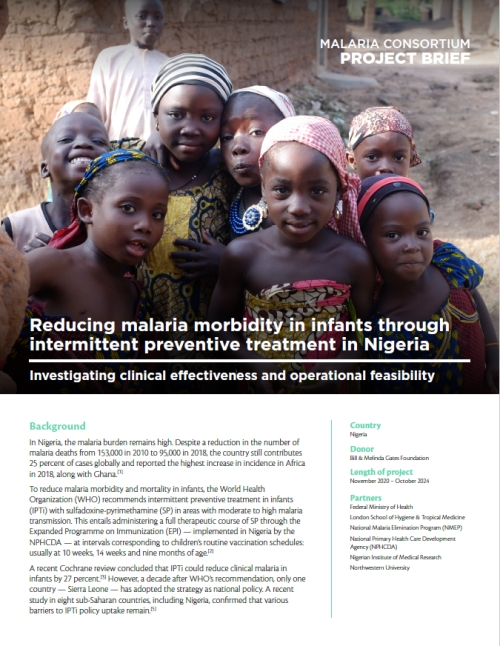Publications

Publication Date:
31/03/2021
Type:
Project brief

Reducing malaria morbidity in infants through intermittent preventive treatment in Nigeria
Publication Date:
31/03/2021
Type:
Project brief

Publication Date:
31/03/2021
Type:
Project brief
Publication

Reducing malaria morbidity in infants through intermittent preventive treatment in Nigeria
Publication Date:31/03/2021
Type:
Project brief
This study will assess the clinical effectiveness and operational feasibility of intermittent preventive treatment in infants in Nigeria.
To reduce malaria morbidity and mortality in infants, the World Health Organization (WHO) recommends intermittent preventive treatment in infants (IPTi) with sulfadoxine-pyrimethamine in areas with moderate to high malaria transmission. However, a decade after WHO’s recommendation, only one country has adopted the strategy as national policy, and various barriers to IPTi policy uptake remain. This study will assess IPTi’s clinical effectiveness and operational feasibility in Nigeria. It aims to generate the necessary evidence to support the intervention’s uptake in the national health policy.
Click here to download View on projects database
Country: Nigeria
Keywords: Capacity development | SBC | Research | Malaria | MNCH | Chemoprevention | SDGs
« Back to Publications